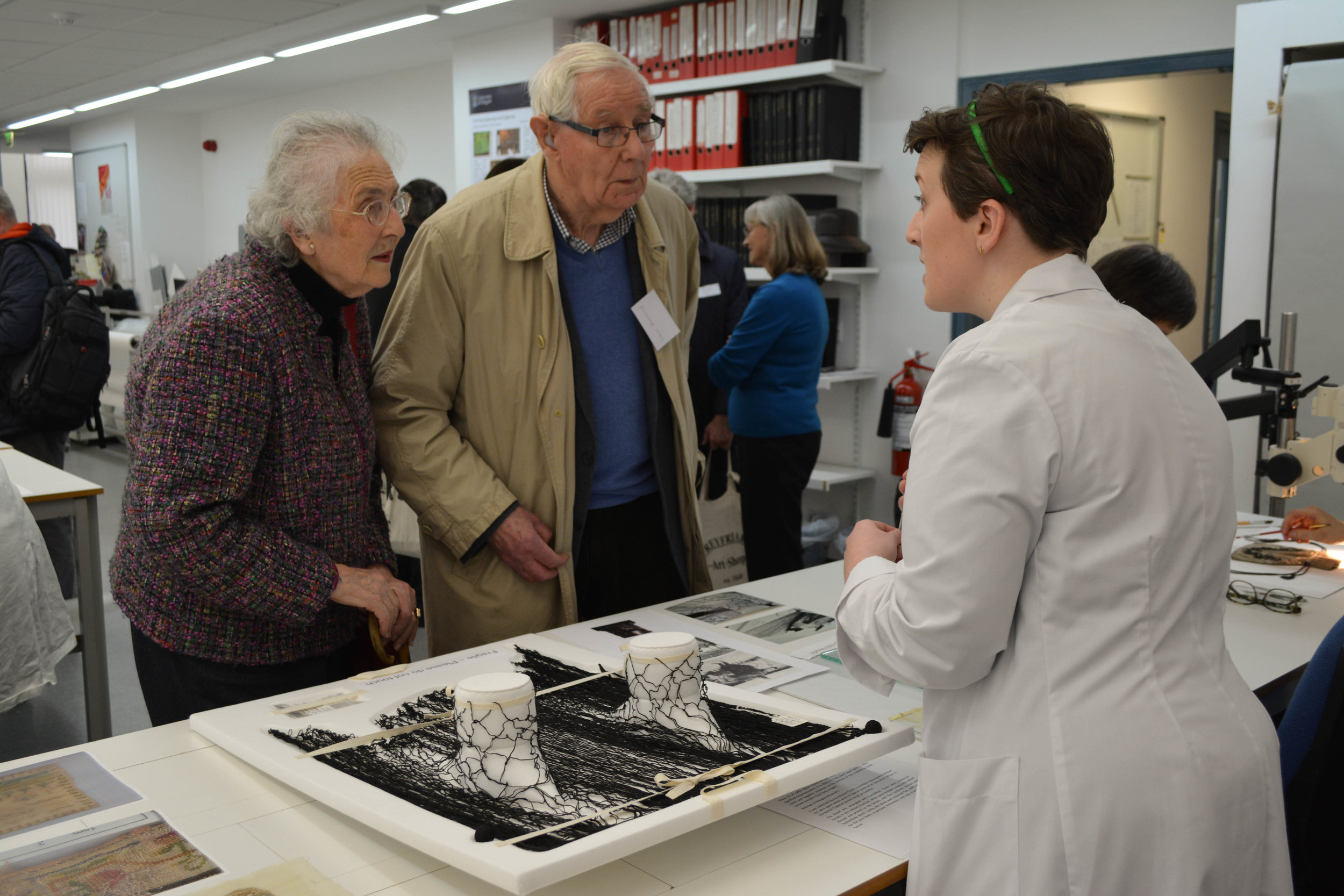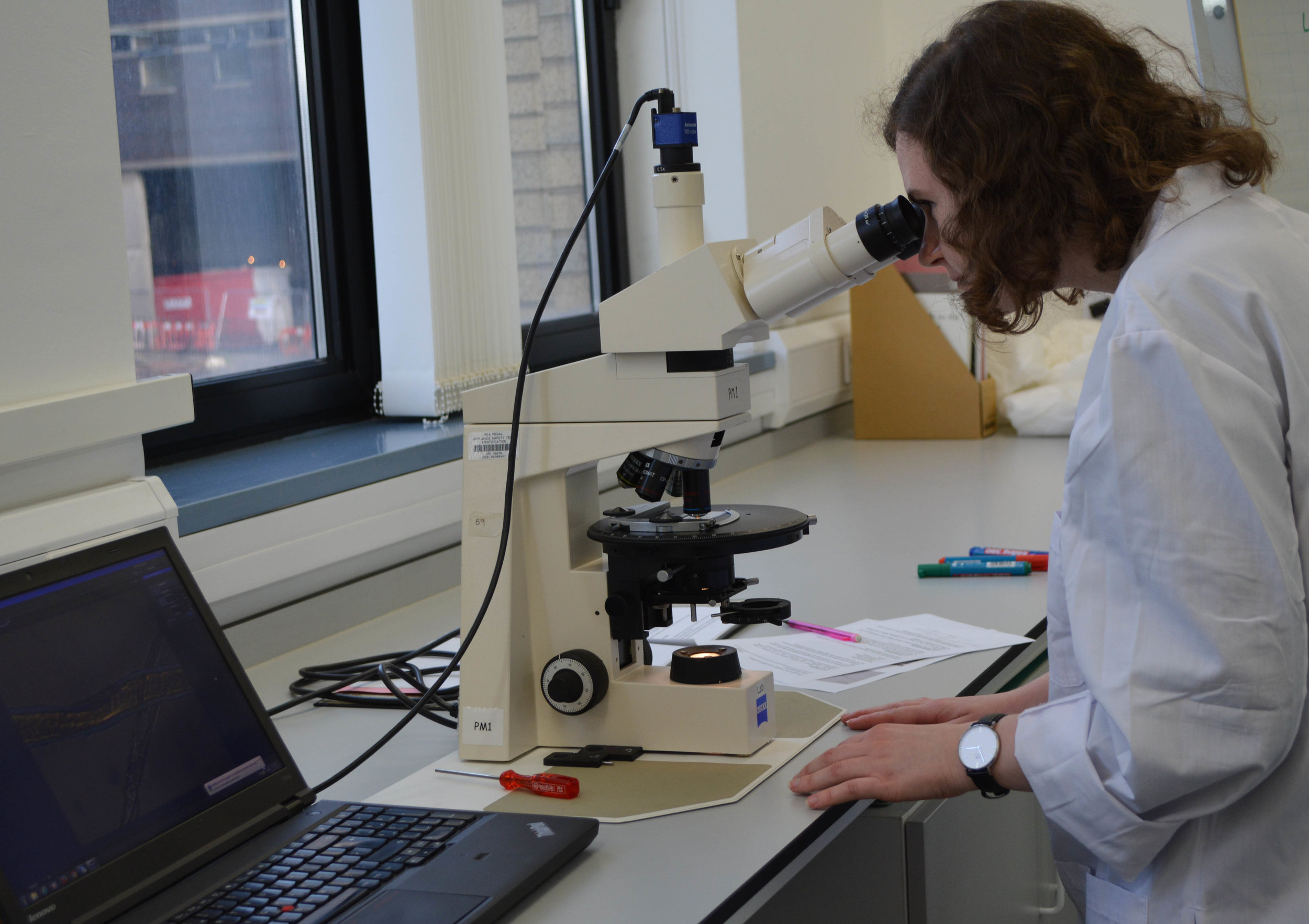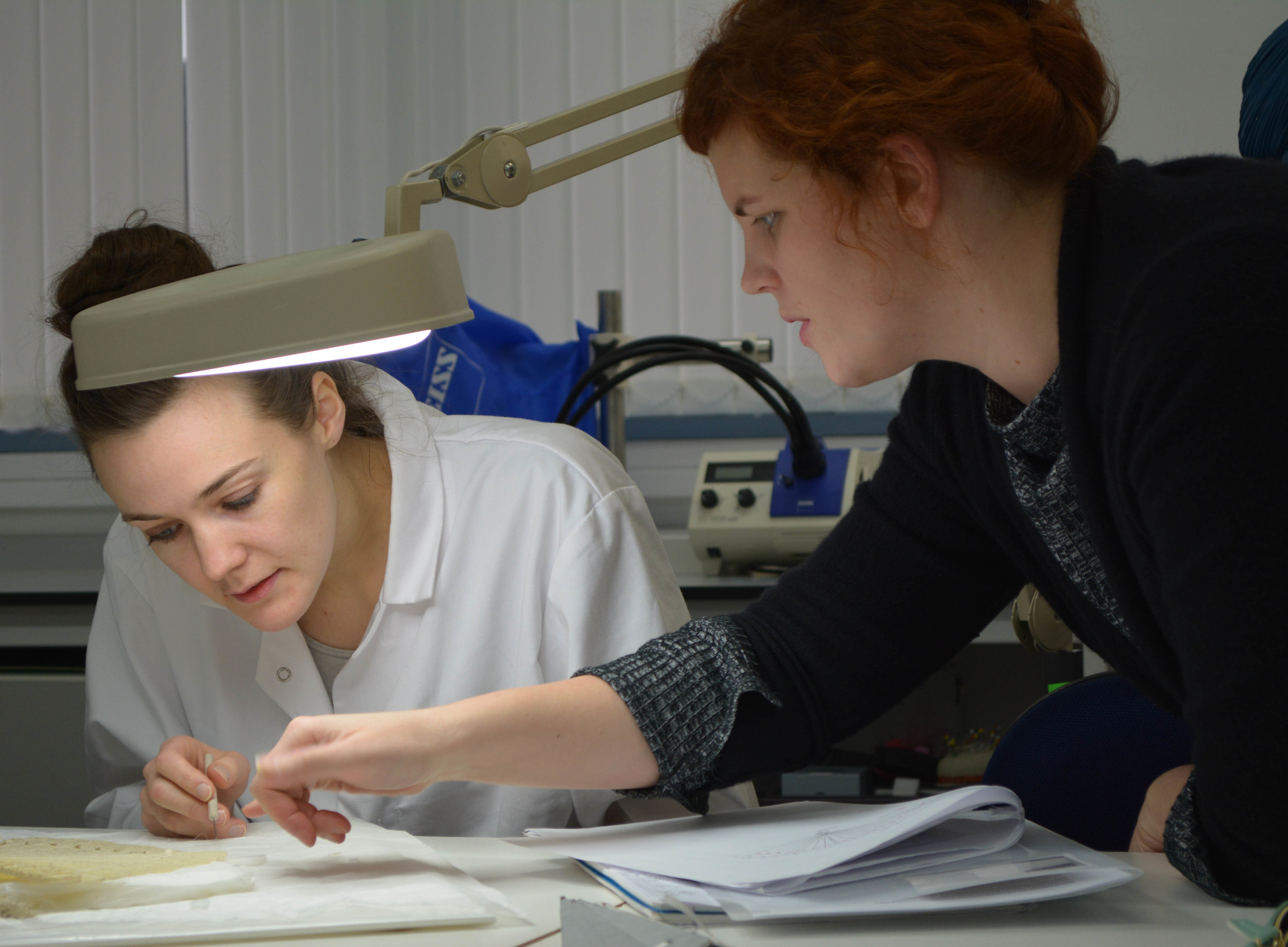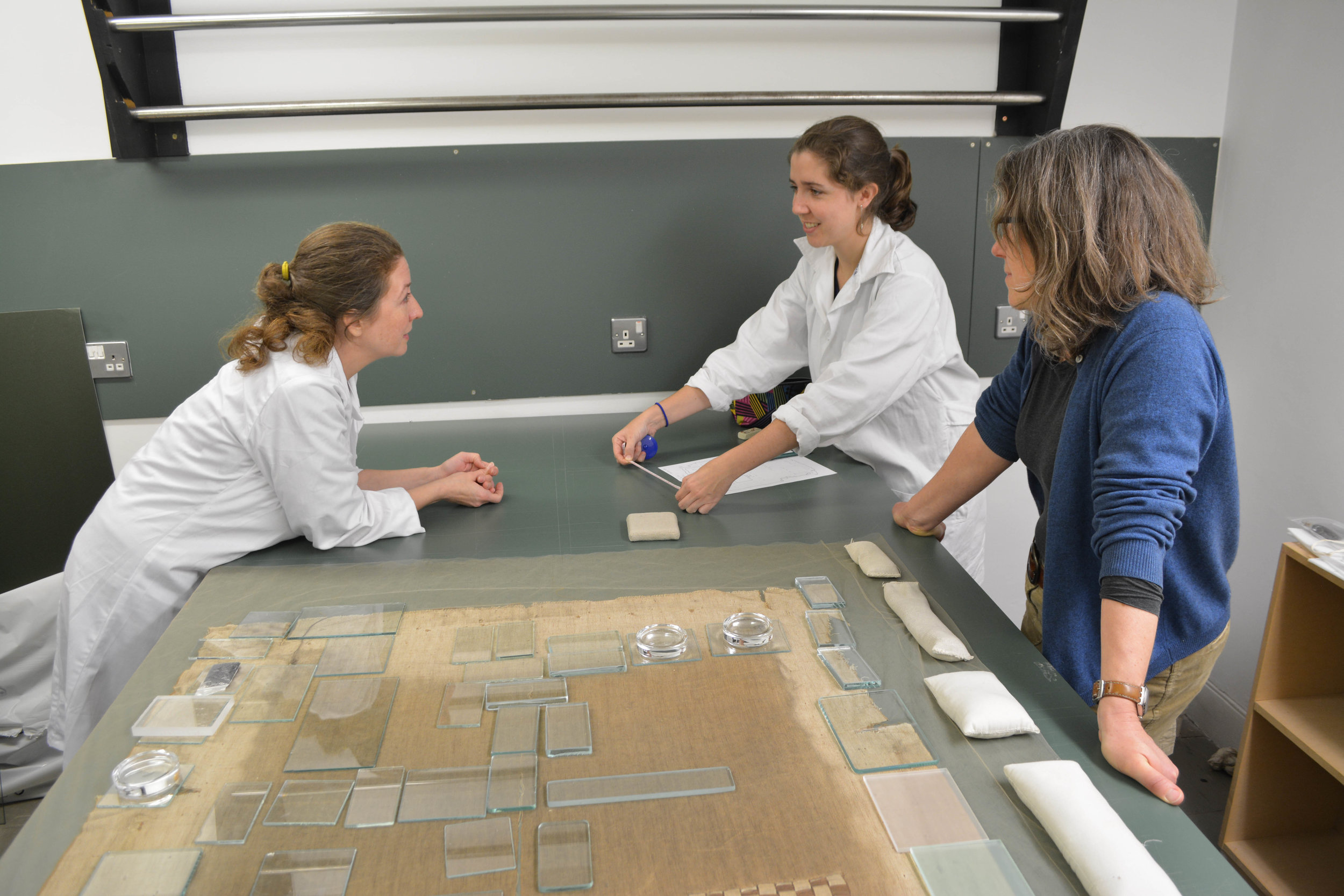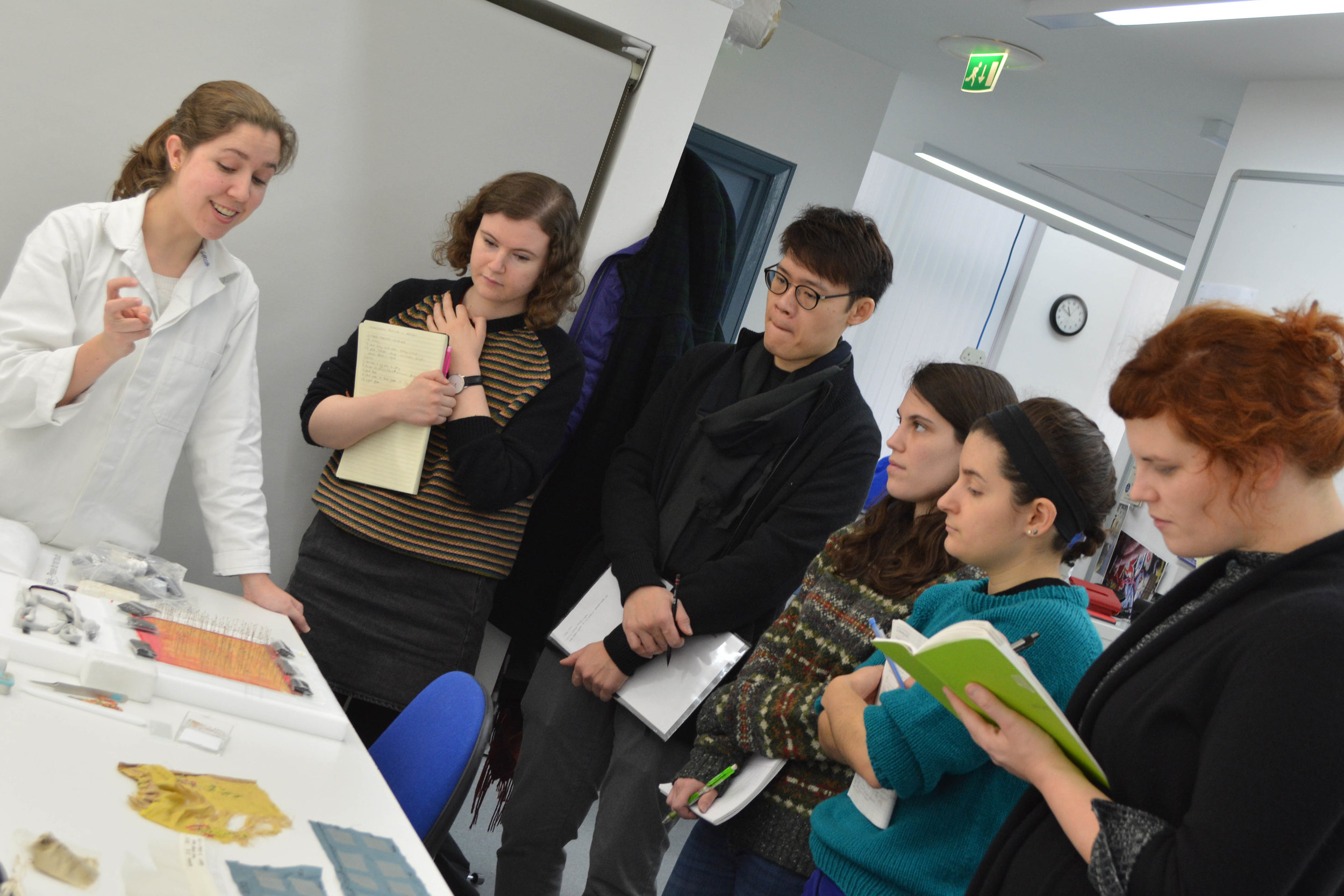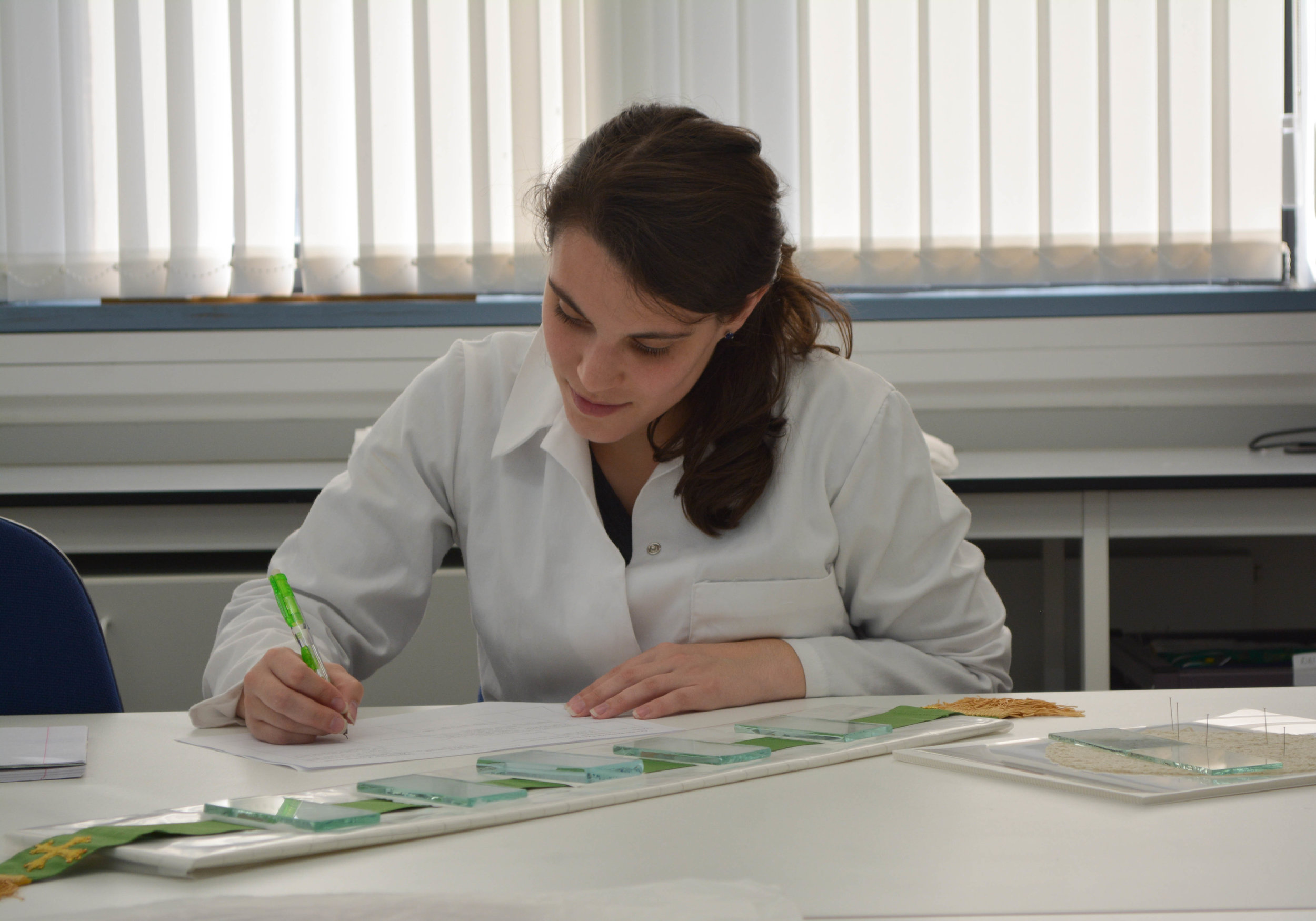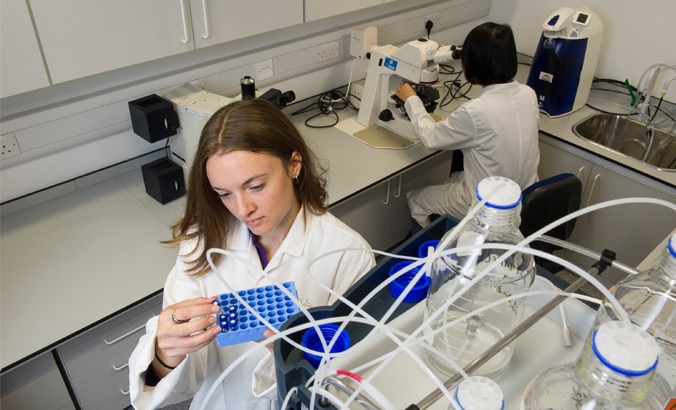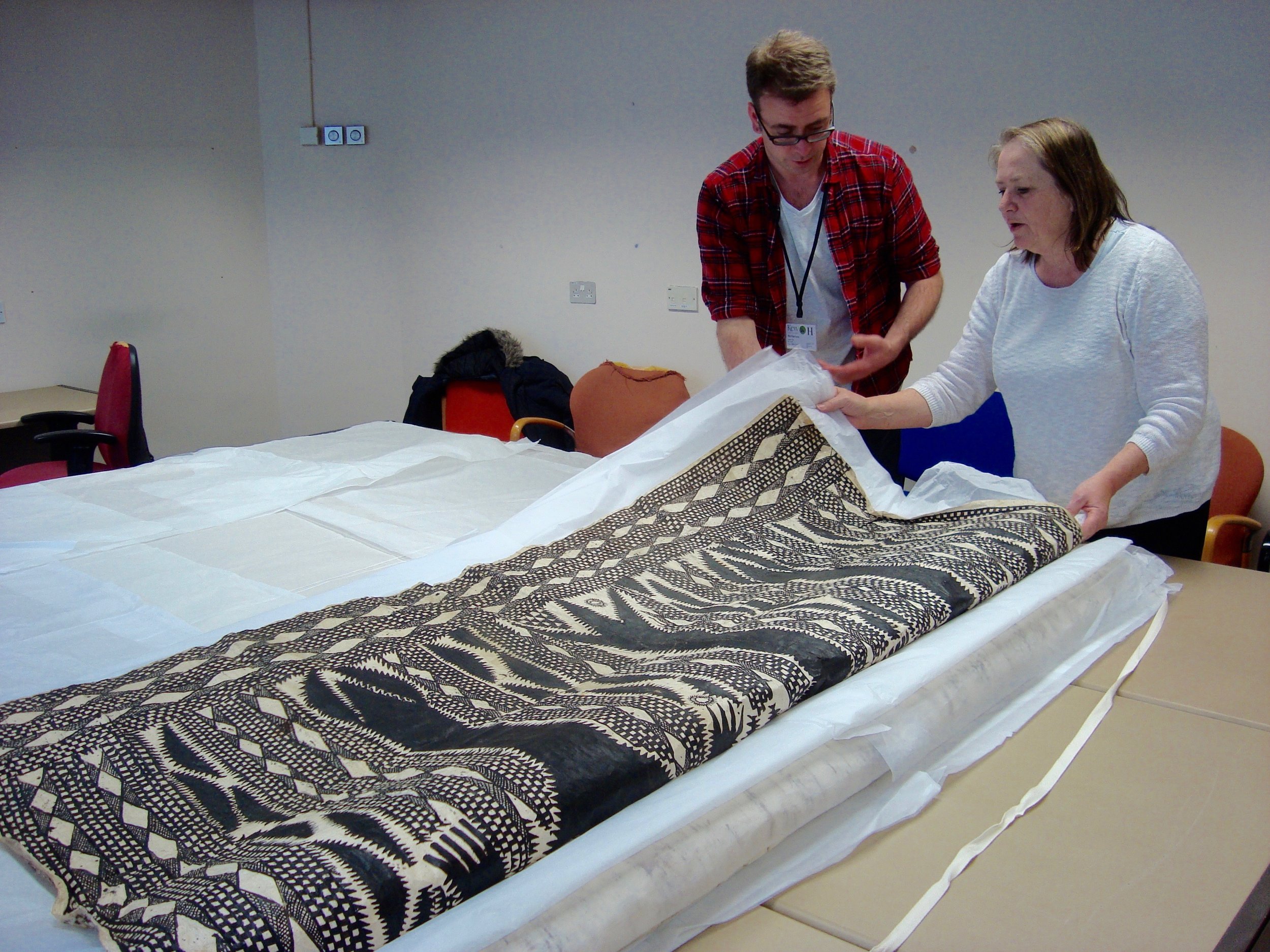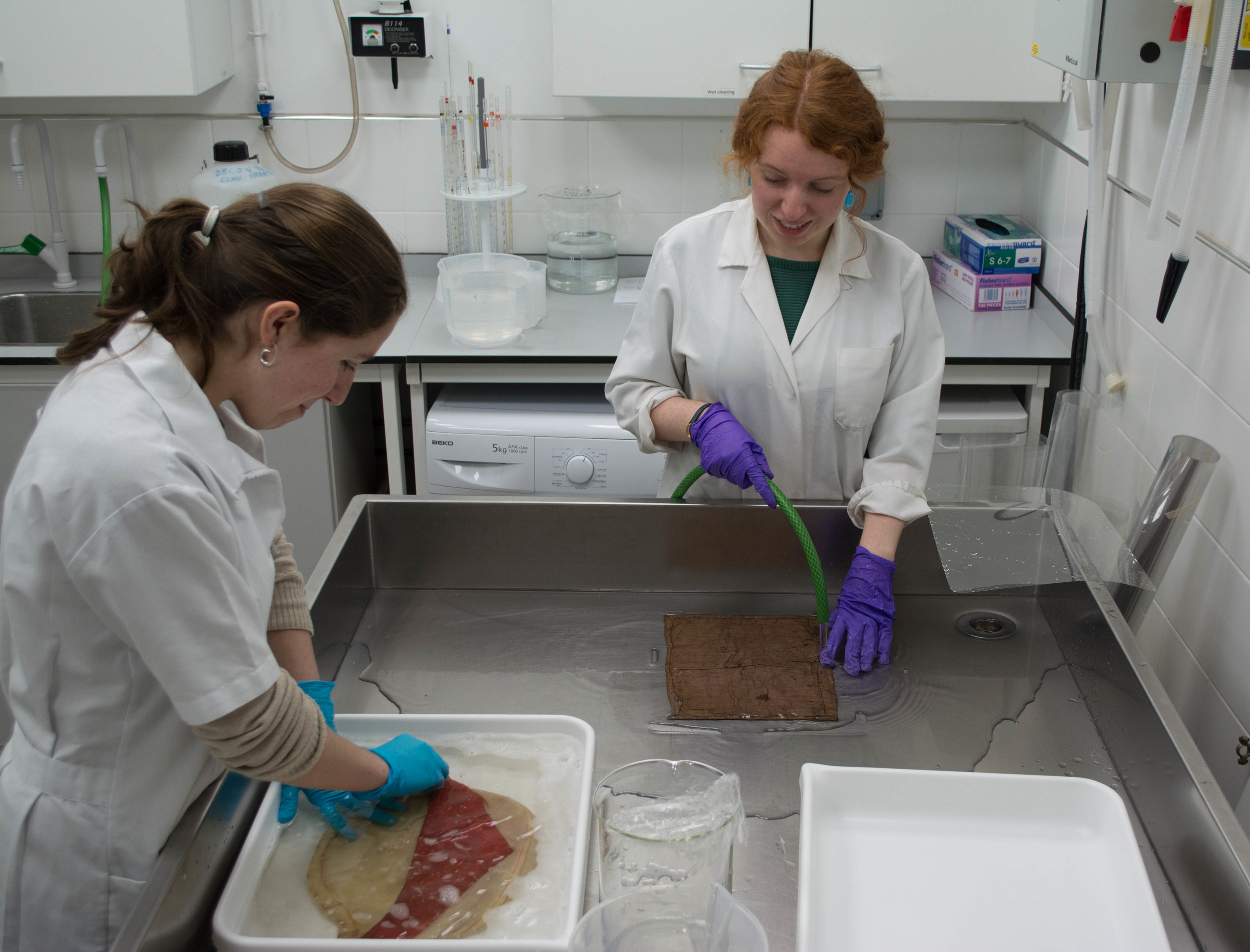Dr Karen Finch OBE
We are so sorry to pass on the news that Karen died peacefully, at home, on Sunday 15th April.
She is mourned by her daughter, Katrina, her son-in-law Alan and her beloved grandsons Joshua and Jacob. Katrina wrote, “We shall forever miss the extraordinary person Karen was, whose smile and enthusiasm for life shone a radiant glow over even the most mundane.”
Having trained many students from around the world at her own practice at her home in Ealing, Karen founded the Textile Conservation Centre, in Grace and Favour apartments at Hampton Court Palace in 1975. There she established the three-year postgraduate diploma in textile conservation validated by the Courtauld Institute of Art, a huge step forward in the training of textile conservators and a qualification held by many of us working in the field. From its inception the TCC included a conservation services section where trained conservators worked alongside the students and teaching staff. Karen was Principal until her retirement in 1986. Her huge achievements in the field were recognised by the award of an OBE.
The TCC moved to a new building at the University of Southampton in 1999. Following its closure by the University in 2009, the textile conservation programme, now an MPhil, was incorporated into the new Centre for Textile Conservation and Technical Art History, established at the University of Glasgow in 2010.
Karen’s legacy is tremendous – she made a huge contribution to the establishment of the field of textile conservation in the UK and worldwide. Well over 100 students completed the postgraduate diploma offered by the TCC at Hampton Court, and very many more studied on the subsequent MA programme offered by the University of Southampton. Students on the programmes came from almost 40 different countries and now hold positions in museums and private practice in countries all around the world.
Teaching was always Karen’s prime motivation and, even after retirement, she maintained her passion for textiles and their conservation and kept in touch with her wide network of friends, colleagues and former students around the world.
Professor Frances Lennard, Director of the Centre for Textile Conservation writes: "Karen taught me as a student and retained her interest in developments at the TCC and later the CTC here in Glasgow. We still use the Karen Finch Reference Collection on a daily basis, and although the textile conservation programme has developed over more than 40 years, elements are still recognisable from the early days. Karen was adamant that conservators needed to understand the science underlying conservation treatments and the teaching staff included a scientist from the earliest days. Her legacy is underpinned by the Karen Finch Prize, offered each year by the Textile Conservation Foundation to an outstanding student."
Clare Meredith, Chairman of the Textile Conservation Foundation, summed up Karen’s achievements: "It’s hard now to imagine our heritage sector without textile conservators, but that professional community is Karen Finch’s exceptional legacy. Karen was a true pioneer and her vision, over 40 years ago, was to establish the first recognised training course in textile conservation. Her achievements are legendary, but my memories of meeting Karen in recent years are – above all – of the palpable pleasure, interest and pride she took in past and present students.”
Funeral arrangements
Karen’s funeral will take place on Tuesday 1st of May at 12:15pm at the North Chapel at City of London Crematorium, Aldersbrook Rd, Manor Park, London E12 5DQ. Parking is available.
Flowers are welcome or alternatively donations in Karen’s name can be made to either Marie Curie (www.mariecurie.org.uk) or Barnardos (www.barnardos.org.uk). Cash donations to these charities can also be made at the funeral.
Dress as you please. Post funeral reception at 37 Bisterne Avenue E17 3QR


